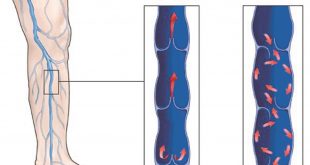By Dr. Jeffrey Ziomek, DPA, EMT-P
 What can you do in seven minutes (or 420 seconds)? The answer is plenty. Some examples include drinking a glass of water, updating your voicemail, emptying your dishwasher, taking out the trash and recycling, or writing a note.
What can you do in seven minutes (or 420 seconds)? The answer is plenty. Some examples include drinking a glass of water, updating your voicemail, emptying your dishwasher, taking out the trash and recycling, or writing a note.
For a paramedic, seven minutes is the average response time from a 9-1-1 call to arriving on the scene and starting patient care. Because they are often dealing with people in physical and/or emotional distress, there are certain personality traits that paramedics should have. First, they should be able to make decisions quickly and remain calm under pressure. They also need to have strong communication skills and resilience. These skills are likely honed during their time as an EMT.
Hodges University offers a paramedic certificate program that includes 42 University credit hours that can be completed in less than one year. Graduates of the program are then eligible to take the National Registry of Emergency Medical Technicians (NREMT) Paramedic credentialing exam that’s required for the State certification and to practice in the field.
Admission requirements include a current Florida EMT license, current BLS/CPR certification, satisfactory completion of immunization and health report, and satisfactory completion of college approved criminal advisory background check.
Students focus on mastering paramedic competencies through various classes, labs, two clinical experiences, and a field internship. The core curriculum covers patient assessment, emergencies, bleeding and shock, traumatic injuries, medication administration, communicable diseases, abnormal behavior, and transportation of patients to name a few examples. The modern Health Sciences building on our Fort Myers campus enables students to practice what they learn in settings that simulate real life scenarios they will likely face. We also have an ambulance that serves as another tool to hone student skills.
As a paramedic, one has many career options. Some include working in public and private ambulance services, fire-rescue departments, aero-medical services, hospitals, and police departments. There are also travelling paramedic opportunities.
Classes for HU Paramedic Certificate Program will start in May: make every second count!
Dr. Jeff Ziomek is the EMS Program Director at Hodges University.
Paramedic Certificate Program
• Starts May 3
• Learn in modern labs, classroom, and ambulance
• Two clinicals and field internship included
• Earn 42 University credits
• Graduate in less than one year
• More info: https://pathways.hodges.edu/courses/ems/
Hodges Uiversity
239-482-0019
pathways.hodges.edu
 Southwest Florida's Health and Wellness Magazine Health and Wellness Articles
Southwest Florida's Health and Wellness Magazine Health and Wellness Articles

